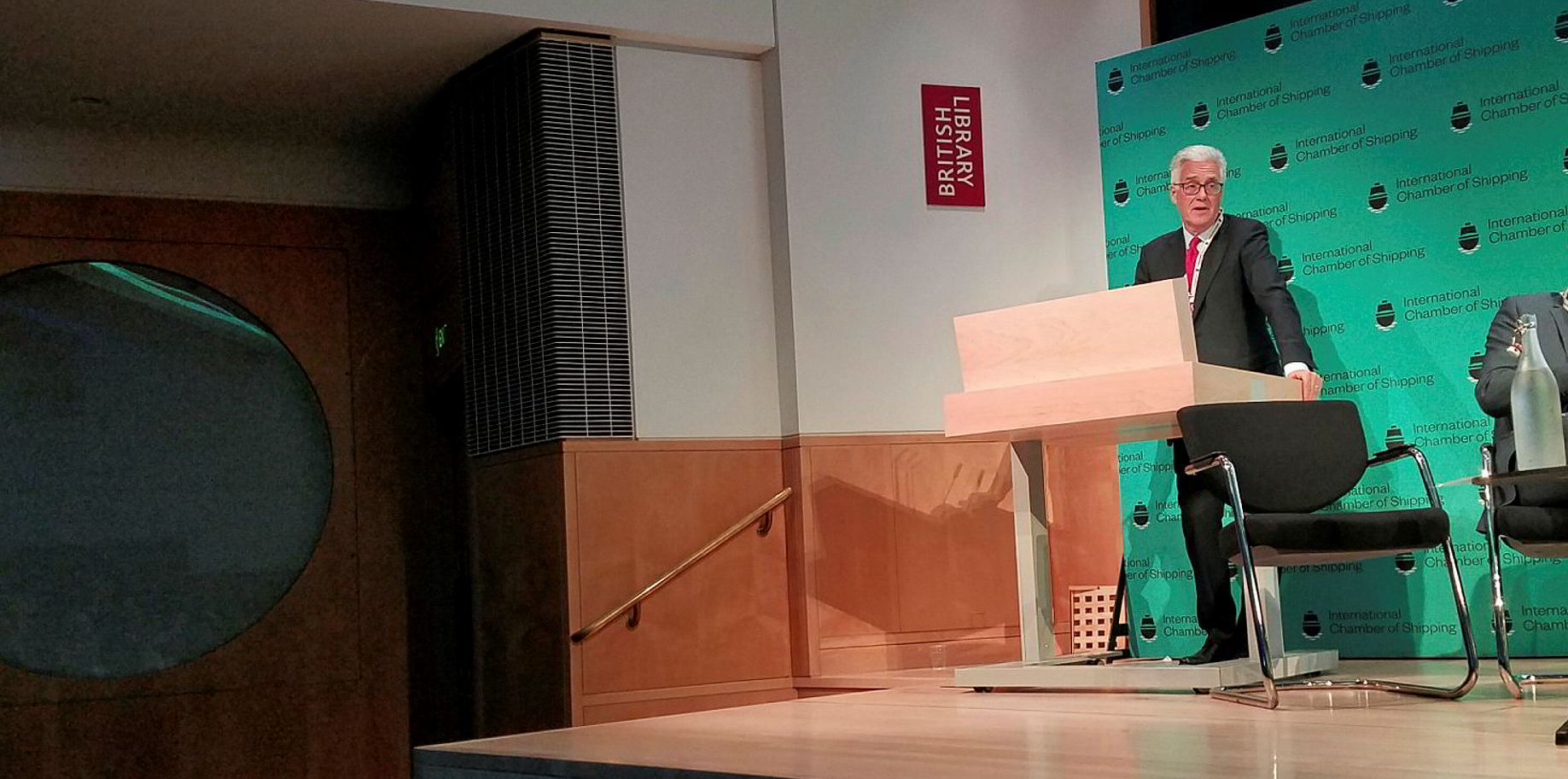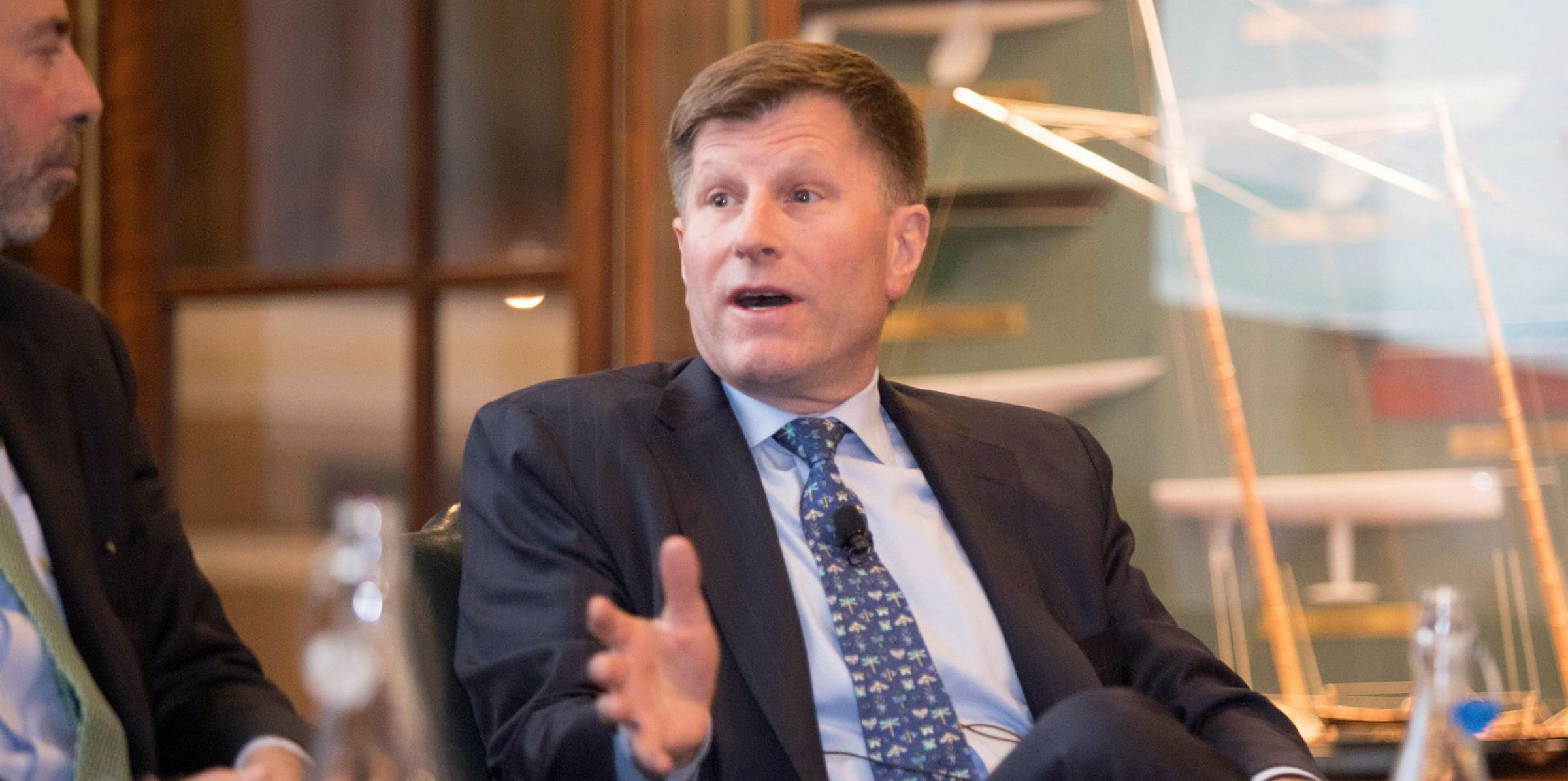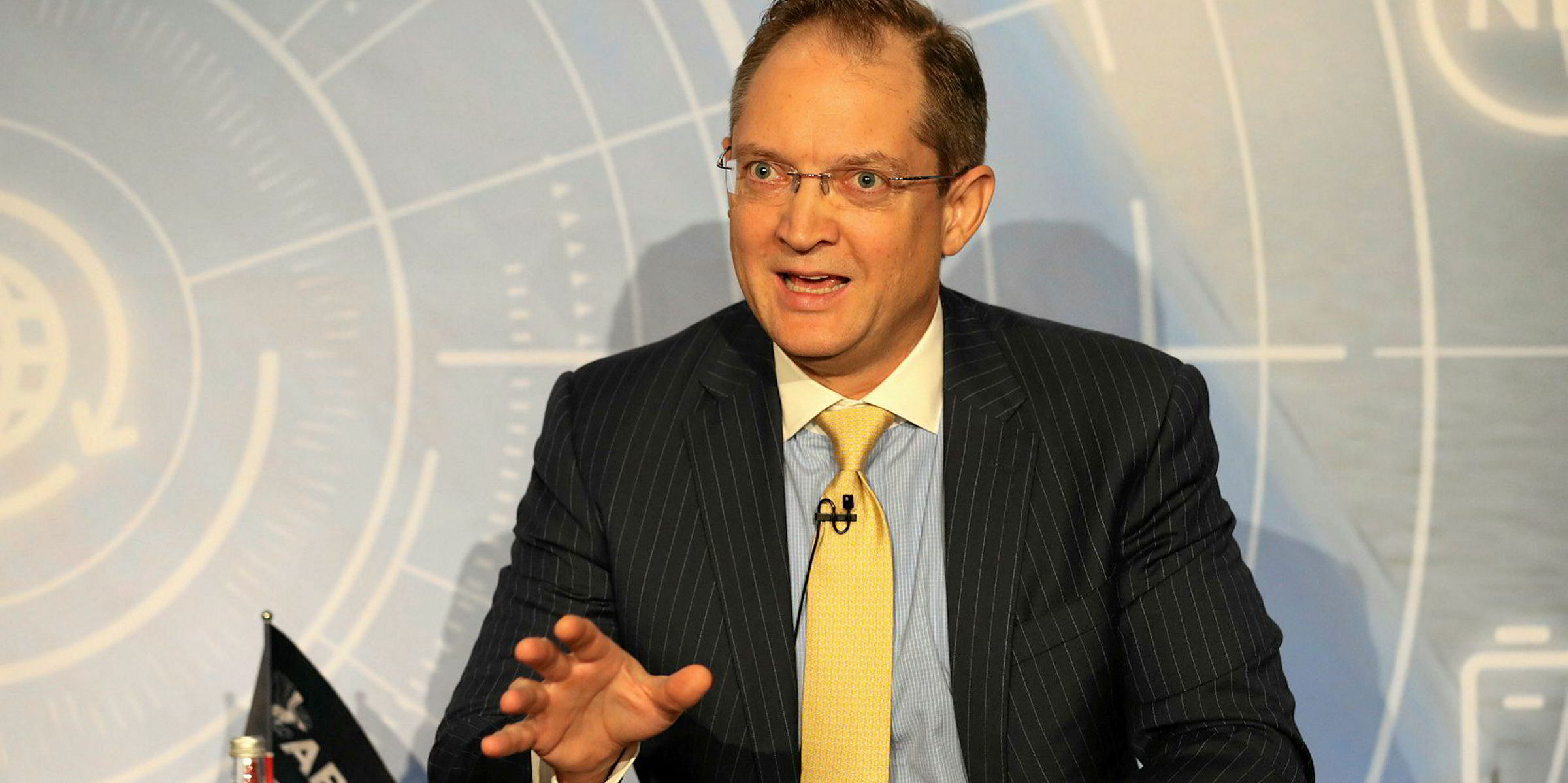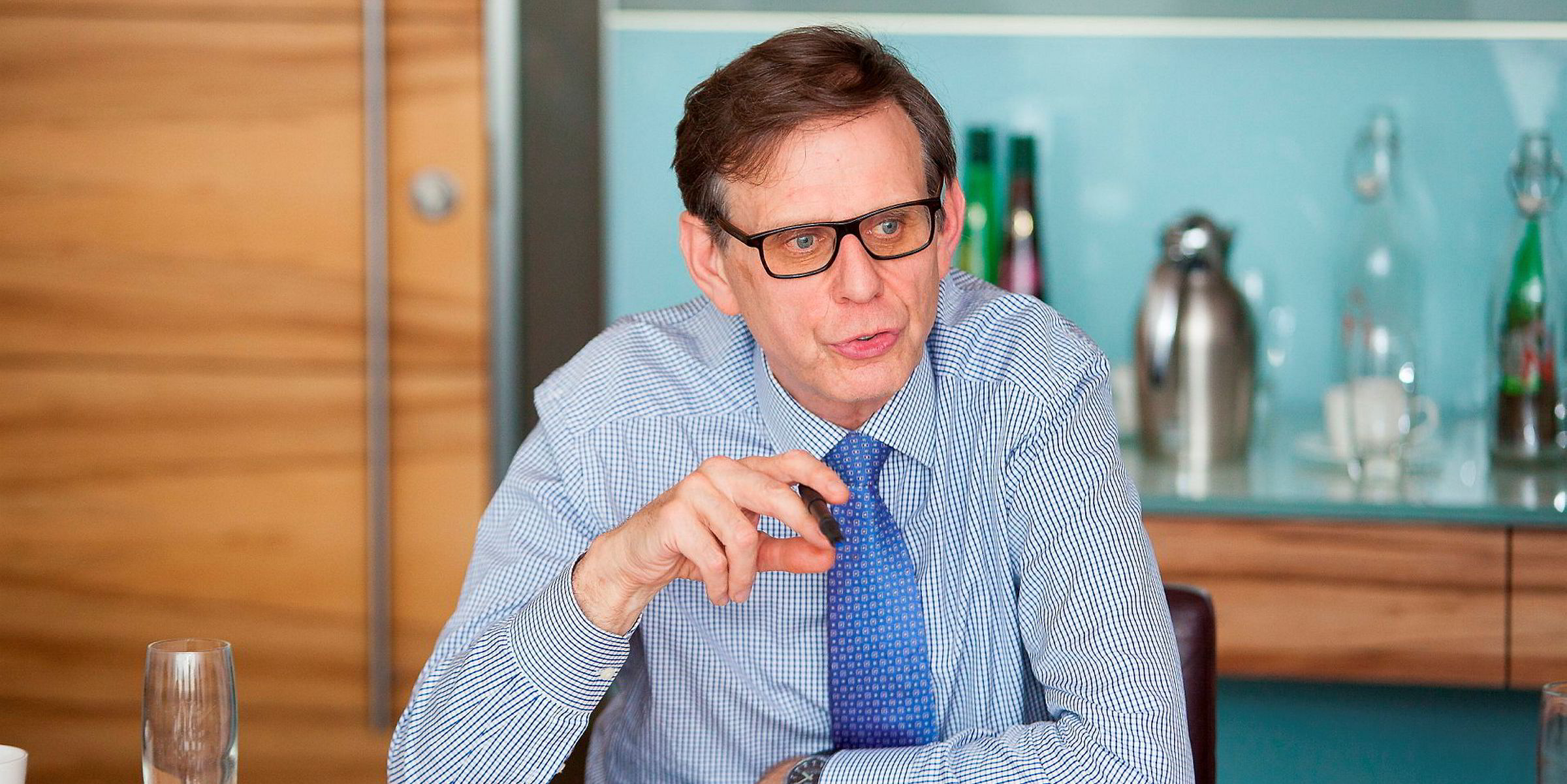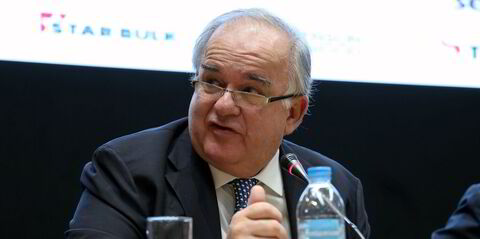Shipping can get to net zero emissions by mid-century, environmental groups said Wednesday, but it's going to need the IMO to step up beyond its current commitments.
Energy Transitions Commission chairman Lord Adair Turner told attendees at the International Chamber of Shipping's "Setting Course for 2050" conference in London that decarbonizing shipping will be expensive, but is doable thanks to the fact the industry has a global regulatory body.
"We are absolutely convinced there are a variety of ways forward, there are technological routes where we could be running by 2050 a zero-carbon global shipping industry," Turner said.
"The challenge for the industry is a challenge of coordination. As long as you all move together, then that's not a threat to your profitability. It's a cost the world will take and the world can afford to take. But you can't afford to move alone."
The IMO has already mandated the industry must cut greenhouse gas emissions by 50% by 2050, but Turner's group believes getting to real zero — not net-zero — carbon emissions by that time is possible across the developed world.
But shipping, Turner said, is one of a handful of industries where it is very difficult to make significant cuts.
One reason, he said, was because shipping is already the most environmentally-friendly way to move goods globally when compared to trains and trucks. Another is because demand is only expected to grow, offsetting any carbon cuts that more efficient ship designs and engines could bring.
But with the IMO able to regulate the entire industry, change to cleaner, but more expensive, alternative fuels like ammonia and hydrogen becomes easier, Turner and Baroness Bryony Worthington of the Environmental Defense Fund said. Turner added that higher prices paid for by charterers and consumers would be small and easily absorbed.
Worthington said a global regulatory body like the IMO is something the rest of the world should be envious of.
"Unilateral, single member state action will always be held back by fears of competitiveness," she said. "To have a level playing field" is a huge advantage."
Worthington noted there were a number of potential ways forward.
"You can't wait for perfection," she said. "You shouldn't' expect there would be one silver bullet ... it's more like silver buckshot."
